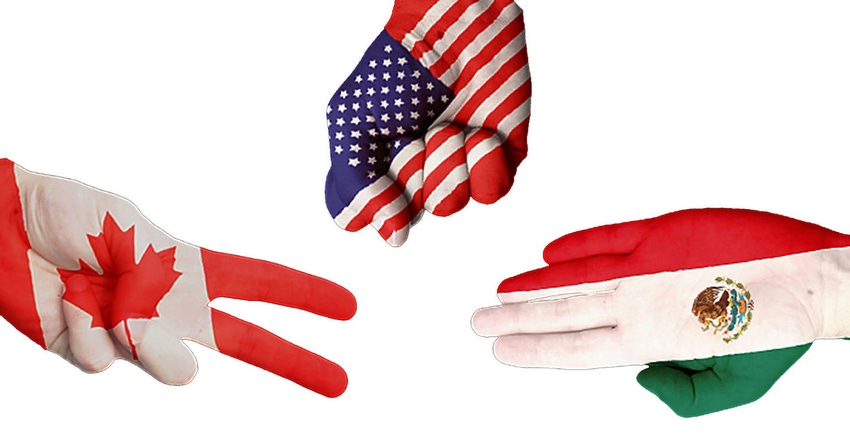
by Josh Wingrove, Andrew Mayeda and Eric Martin
Negotiations over the future of NAFTA were extended into the first quarter of 2018 in a bid to resolve differences after Canada and Mexico rejected what they see as hardline U.S. proposals.
U.S. Trade Representative Robert Lighthizer, Mexican Economy Minister Ildefonso Guajardo and Canadian Foreign Minister Chrystia Freeland spoke in Washington Tuesday as battle lines form around contentious proposals to revamp the North American Free Trade Agreement.
“New proposals have created challenges and ministers discussed the significant conceptual gaps among the parties,” Lighthizer said, reading a joint statement at the close of the fourth round of talks Tuesday. “Ministers have called upon all negotiators to explore creative ways to bridge these gaps.”
During their joint remarks to the press, Lighthizer said he’s “surprised and disappointed” by the outcome so far, while Guajardo said Mexico has limits to what it can accept, and Freeland said some of the proposals run counter to World Trade Organization rules.
In the joint statement, ministers reaffirmed their mandate to reach a deal in a reasonable period of time. Mexico will host the the fifth round of talks Nov. 17-21, which is later than originally anticipated as ministers give themselves more time between sessions to assess proposals.
The Mexican peso jumped more than 1% on news of the 2018 timeframe for talks, as investors bet it decreased the odds that the deal would fall apart any time soon. The Trump administration had previously set a goal of finishing negotiations as soon as this year.
But Mexico and Canada have repeatedly and publicly rejected the U.S. demands on dairy, automotive content, dispute panels, government procurement and a sunset clause.
Freeland said Tuesday that a deal that benefits the three countries “cannot be achieved with the winner-take-all mindset, or an approach that seeks to undermine NAFTA rather than modernize it.” Still, she added that an agreement for an improved NAFTA is “absolutely achievable.”
‘Good Agreement’
President Donald Trump has called NAFTA a disaster and repeatedly threatened to withdraw the U.S. from the agreement, a step the White House can set into motion by giving six months’ notice to its trading partners. At stake is the $1.2 trillion in annual trade between the three countries, as well as the business models of companies such as Ford Motor Co. and General Motors Co. that have adapted their supply chains to take advantage of the trade zone.
Lighthizer told reporters he’s not focused on the possibility of the U.S. exiting the deal. “I’m focusing on trying to get a good agreement,��” he said, though he added that the three countries would do “just fine” without NAFTA.
“Right now, it’s a great deal for the Mexicans and the Canadians, in my opinion. It’s a great deal for businesses that have decided they want to take advantage of the situation,” Lighthizer said. “It’s possible to take a little bit of the sugar away and have them say, ‘Yeah, we’re still doing pretty well.”’
Trump again decried “massive trade deficits” with trading partners, speaking at the White House on Tuesday.
“Companies are leaving and they’re firing the people and the product is made elsewhere and then it’s sold back into the United States,” he said. “I’m not going to be allowing that, so I can understand how certain countries and the leaders of certain countries may feel. But we’re just not going to allow the United States to be taken advantage of by other countries anymore.”
To contact the reporters on this story: Josh Wingrove in Washington at [email protected]; Andrew Mayeda in Washington at [email protected]; Eric Martin in Washington at [email protected]
To contact the editors responsible for this story: Sarah McGregor at [email protected]
Brendan Murray, Randall Woods
© 2017 Bloomberg L.P
About the Author(s)
You May Also Like




